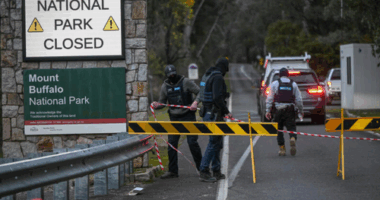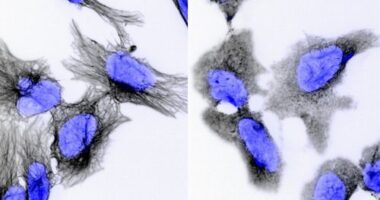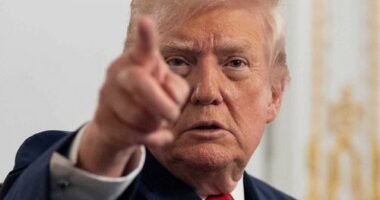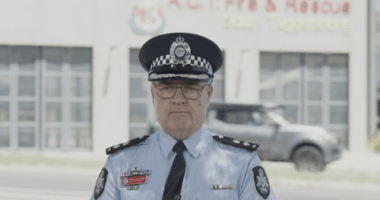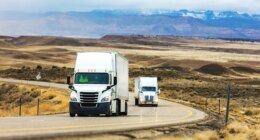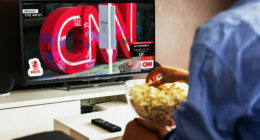Share this @internewscast.com
Despite Albanese’s attempts to emphasize a flourishing relationship with the Pacific family, not everything proceeded smoothly.
A Vanuatu eruption
The Nakamal Agreement, which was supposed to facilitate Australia in providing an additional $50 million in annual aid to the country for the next ten years, was expected to be finalized before the prime minister took off on his RAAF jet.
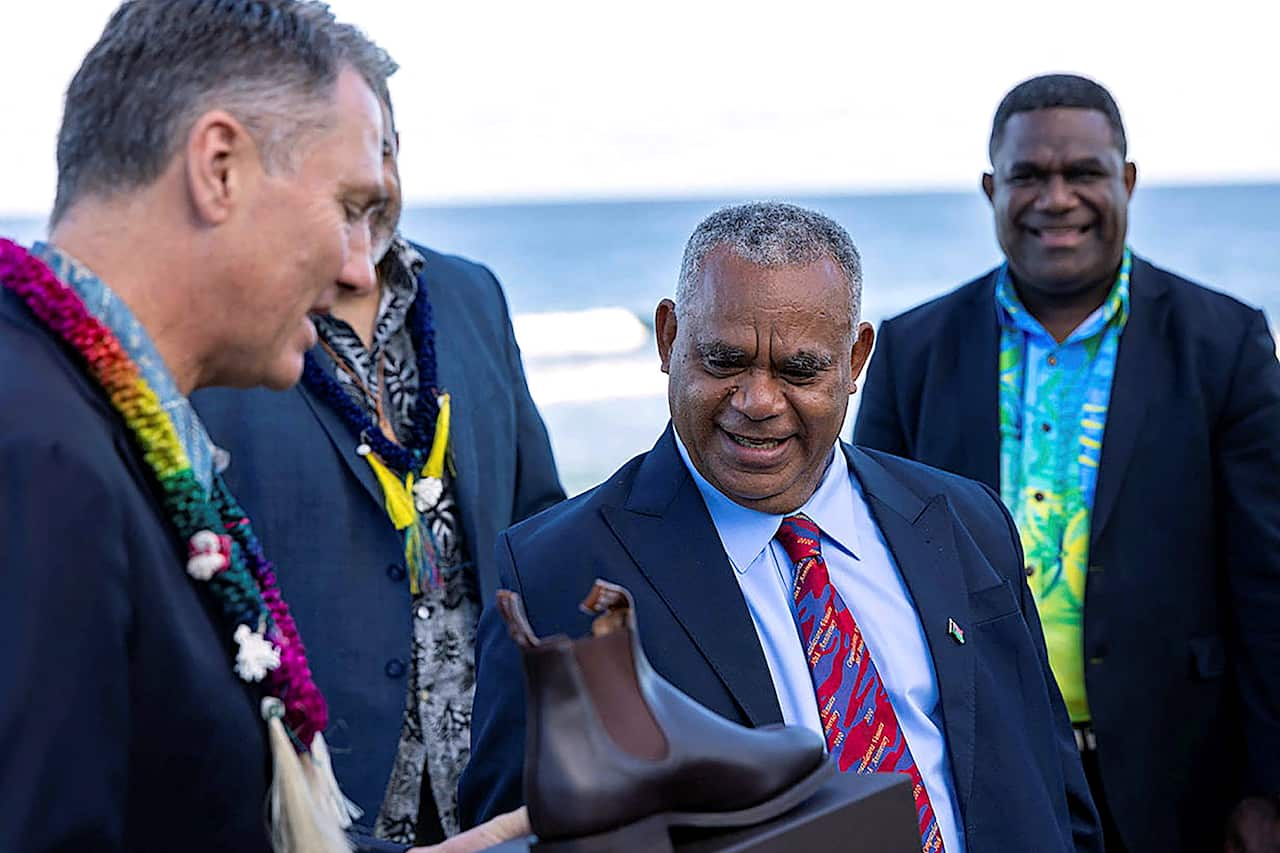
There was widespread anticipation that Australia and Vanuatu leader Jotham Napat (centre) would sign a long-awaited $500 million agreement at the Pacific Islands Forum. Source: AFP / Department of Foreign Affairs and Trade
Last month, Australian ministers trekked to the summit of an active volcano with their Vanuatu counterparts to mark the “finalisation” of the deal — a stratospheric spectacle to celebrate the end of negotiations.
In response on the Today Show, she remarked, “You might be able to speak for Vanuatu, I don’t choose to,” but was interrupted by a fire alarm, ending the interview as “evacuate now” alerts overshadowed her comments. The timing was indeed notable.
4WD diplomacy
The competing statements, released within hours of each other, captured Australian media attention before the event, as stories of Pacific power dynamics were complemented by a theme highlighting the regional affection for four-wheel drives.
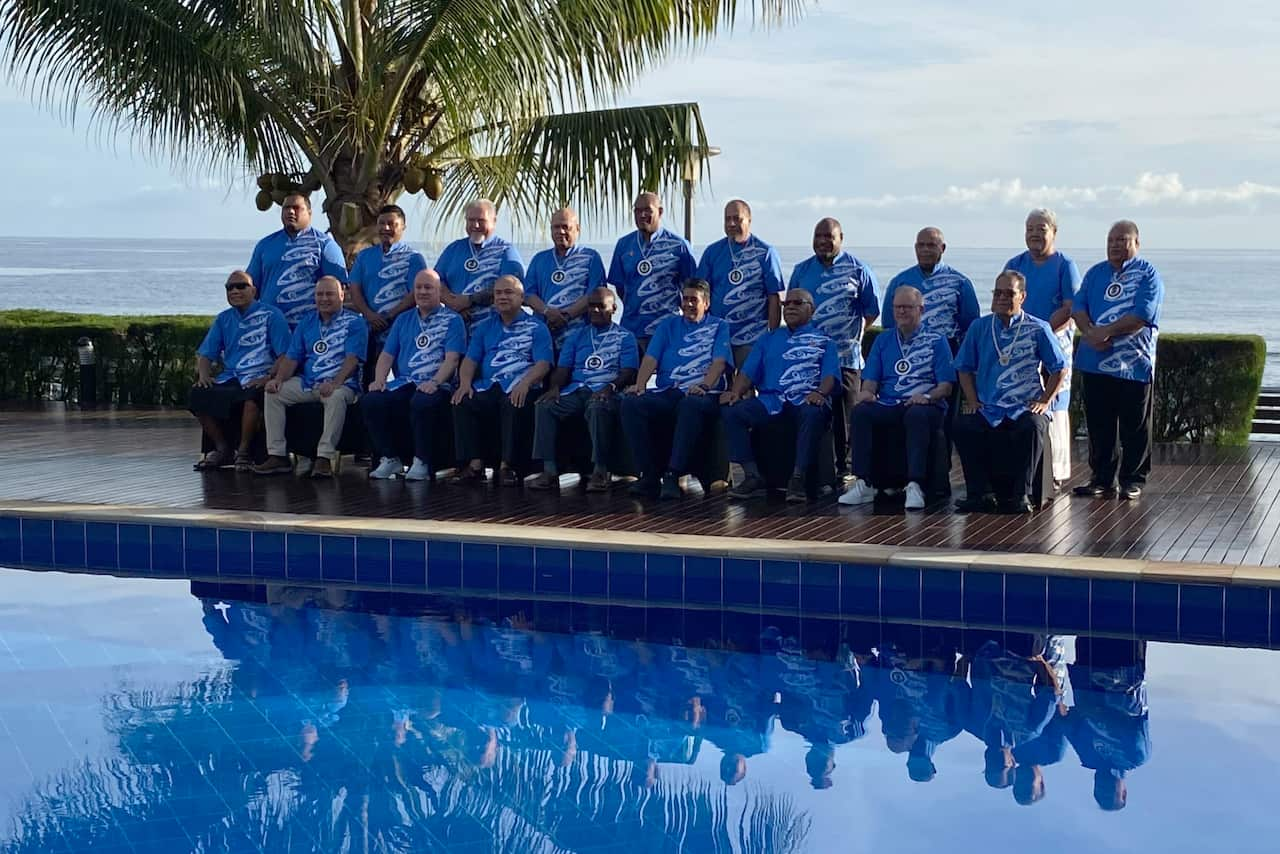
The hosting of the Pacific Islands Forum in Honiara, the lively capital of the Solomon Islands, has intensified the struggle for influence within the Pacific. Source: AAP / Poppy Johnston
And so considerable eyebrows were raised when Albanese stepped off the plane on the Honiara tarmac and hopped into an awaiting Chinese-supplied vehicle.
Solomon Islands Prime Minister Jeremiah Manele addressed the increased strategic interest in the region directly in his opening address to the summit.
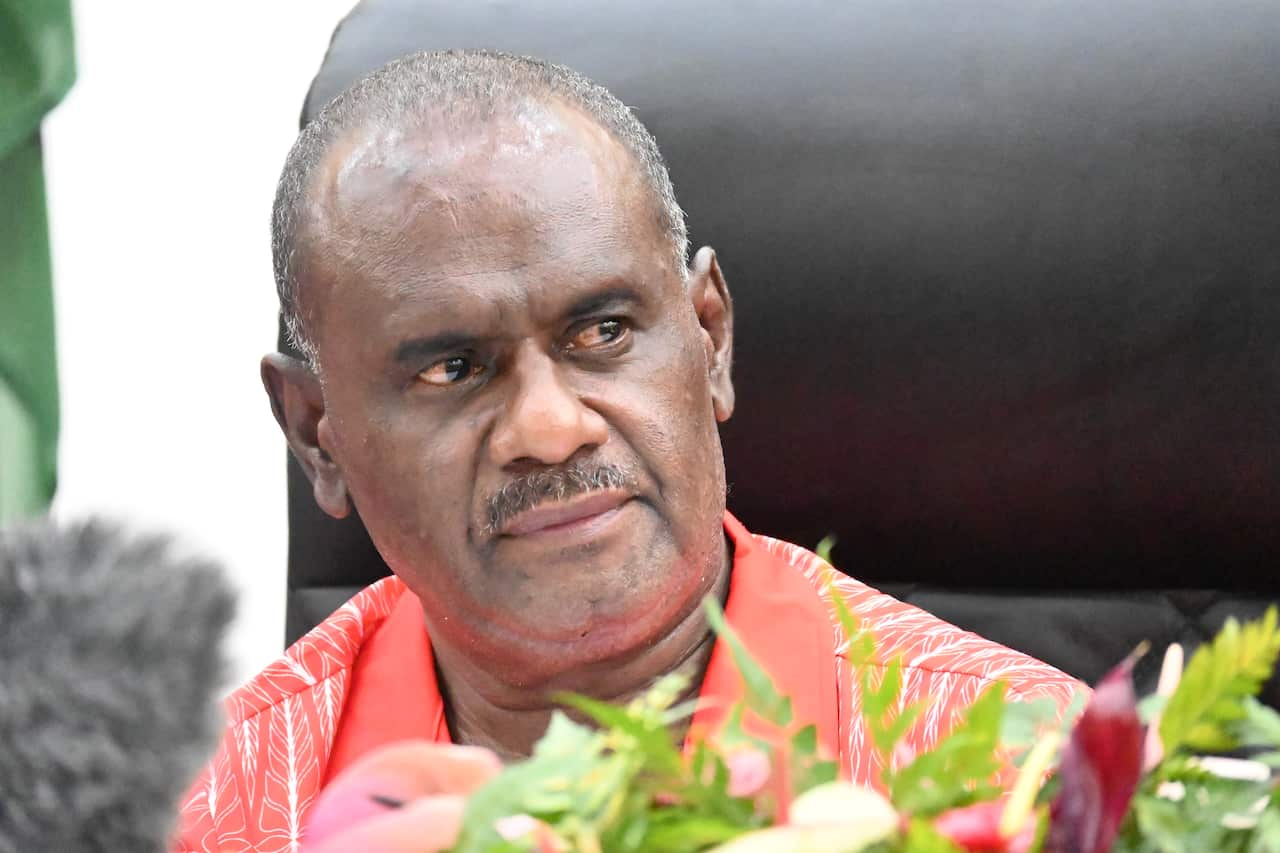
Solomon Islands Prime Minister Jeremiah Manele did not invite PIF partner nations, including China, the US and Taiwan, to this year’s meeting. Source: AAP / Ben McKay
“The world around us is changing fast, competition from powerful interests is intensifying,” Manele said.
Those partners have, on the whole, respected the decision, and the move was criticised by Australia as well as independent Solomon Islands MP Peter Kenilorea Jr.
“While Australia has been very helpful throughout our history … in perhaps a softer policy support capacity, I think the infrastructure space is where the real issues are now decided,” he said.
‘Big dog’ Australia’s climate record questioned
After a few minutes the wardrobe malfunction was identified and while speeches were still ongoing, Albanese, in full view of the cameras, walked out of the room for a frantic shirt change before walking back in a matching garb.
Regenvanu argues the July International Court of Justice ruling finding nations have a legal obligation to prevent climate impacts means Australia’s view that it can meet its Paris commitments by completing a domestic transition, while still exporting fossil fuels like coal and gas, is “now untenable”.


